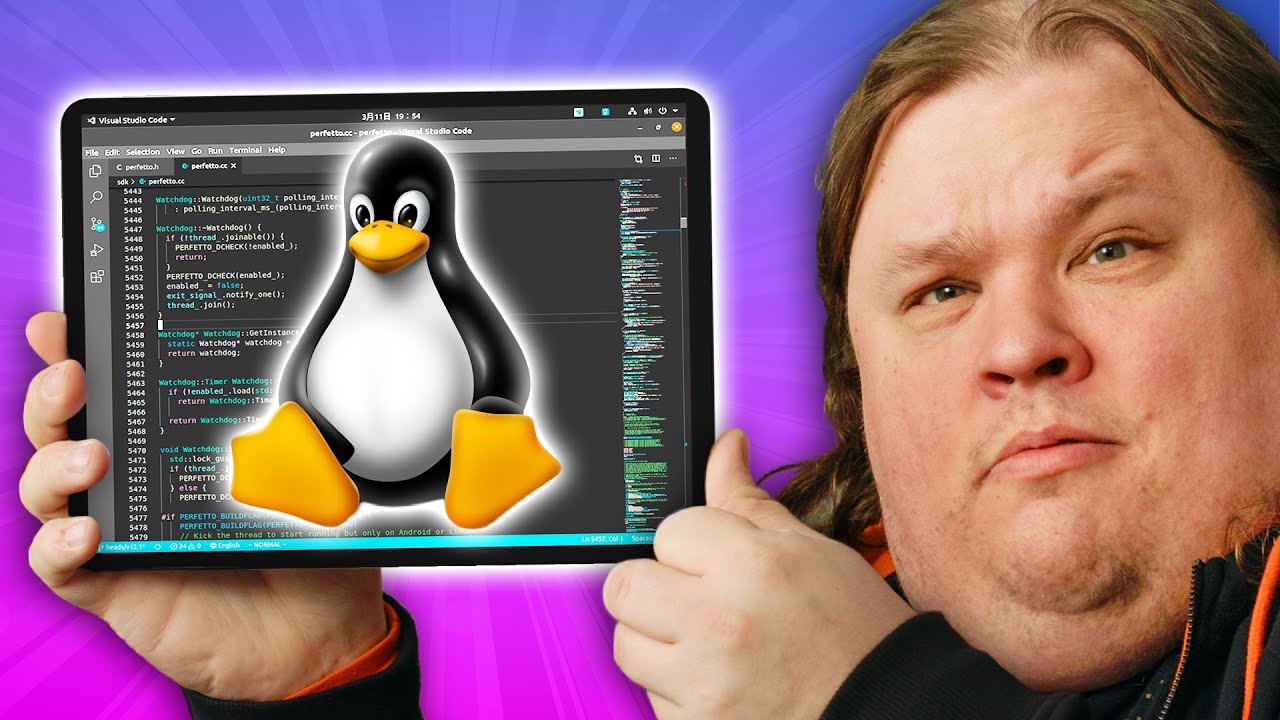Is Linux The ANSWER???
youtu.beGet a $100 60-day credit on your new account at: http://linode.com/shortcircuitApple has basically dominated the market when it comes to tablet devices with ...
You must log in or register to comment.
From Wikipedia, the free encyclopedia
Linux is a family of open source Unix-like operating systems based on the Linux kernel, an operating system kernel first released on September 17, 1991 by Linus Torvalds. Linux is typically packaged in a Linux distribution (or distro for short).
Distributions include the Linux kernel and supporting system software and libraries, many of which are provided by the GNU Project. Many Linux distributions use the word “Linux” in their name, but the Free Software Foundation uses the name GNU/Linux to emphasize the importance of GNU software, causing some controversy.
Rules
- Posts must be relevant to operating systems running the Linux kernel. GNU/Linux or otherwise.
- No misinformation
- No NSFW content
- No hate speech, bigotry, etc
Related Communities
Community icon by Alpár-Etele Méder, licensed under CC BY 3.0
- 0 users online
- 5 users / day
- 20 users / week
- 27 users / month
- 16 users / 6 months
- 20 subscribers
- 684 Posts
- 1.7K Comments
- Modlog



ppl be like
excuse me, why is this completely new tablet that runs linux designed by small startup in china not price competitive and isn’t as good as this tablet from a company that’s worth trillions of dollars and has been designing tablets for a decade 😡😤
It’s like all the tech journals harping on Fairphone for being as expensive as a flagship phone for a midrange performing phone.
Like, you do realize that the entire goddamn point of the Fairphone is that they don’t engage in cost cutting measures that are unethical or reduce the longevity or sustainability of the product, right?
https://redirect.invidious.io/watch?v=P-14-qlKyHA
Pretty sure this thing can’t run mainline. They have compiled binary blobs in there. You won’t be distrohopping anytime soon
That’s the issue with most ARM SOCs. Same problem AFAIK with the Raspberry Pi and Pine64 products. We really need more mainline compatible ARM (or mass market RISC-V) chips.
I don’t think so. Those all have mainline support. I know pinephone and librem 5 does. Modem has some propriety blobs in there but there is already working FOSS replacements.
I stand correct then. I wonder what the problem is with the JingPad in that case. Like, is there some weird hardware or chip that they’re using that only has proprietary drivers?
Most soc drivers are closed sourced and compiled into the kernel. Not exactly sure how it works. Thats why ubuntu touch went the route of just creating a layer in between.
Sometimes someone writes mainline drivers like the soc in the oneplus 6 recently.
The biggest pitfall of a monolithic kernel is the security implications of these drivers.
Software seems early days and I doubt the SoC is really the bottleneck as Anthony makes it out to be.
But $700? yeah… makes it a hard sale for what it offers right now.
Maybe in a year or two after further software improvements.
It doesn’t even have rotation.
There are definitely some rough spots. They intend to have rotation working soon, but I was surprised by that omission as well.
Probably a DE issue with realigning all the windows, icons, or other UI elements. In their defense, Windows tablets are just as inelegant with this as when the first Surface dropped. Hope it’s not an accelometer driver issue though.
i agree, i think the price is way too high but if they can actually get the desktop apps to work then it may be a pretty good cross over machine.